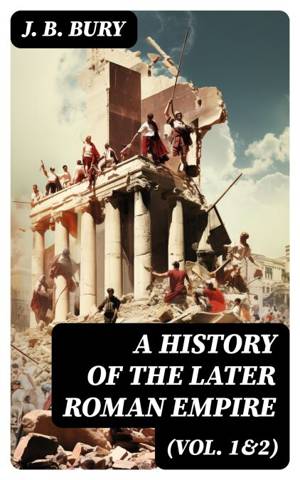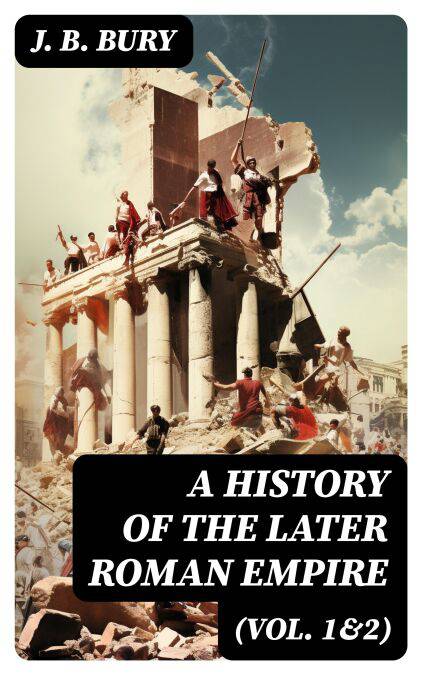
- Afhalen na 1 uur in een winkel met voorraad
- Gratis thuislevering in België vanaf € 30
- Ruim aanbod met 7 miljoen producten
- Afhalen na 1 uur in een winkel met voorraad
- Gratis thuislevering in België vanaf € 30
- Ruim aanbod met 7 miljoen producten
Zoeken
A History of the Later Roman Empire (Vol. 1&2) E-BOOK
From the Death of Theodosius I to the Death of Justinian - German Conquest of Western Europe & the Age of Justinian
J. B. Bury
E-book | Engels
€ 1,99
+ 1 punten
Uitvoering
Omschrijving
In "A History of the Later Roman Empire," J. B. Bury delivers a meticulously researched and engaging narrative that explores the complexities of the Roman Empire during its transformative years from AD 284 to the fall of Constantinople in 1453. Bury's literary style is marked by a profound analytical approach, seamlessly weaving together political, social, and cultural dimensions of the period. He situates his study within the broader context of early 20th-century historiography, where the interplay of momentous events and figures—such as the reign of Emperor Diocletian and the rise of Byzantine influence—are examined with clarity and depth, offering readers a nuanced understanding of this critical juncture in history. J. B. Bury was a prominent historian and philologist whose scholarly work reflected a deep-seated interest in the dynamics of power and identity in the ancient world. His academic background and extensive travels across Europe enriched his understanding of the Roman Empire's legacy, allowing him to draw insightful connections between the past and contemporary issues. His engagement with classical literature and history informed his profound views on the evolution of civilization, making his analyses particularly poignant and relevant. I highly recommend "A History of the Later Roman Empire" to both historians and general readers alike. Bury's work not only serves as an essential reference for scholars but also provides an accessible yet profound exploration for those eager to understand the complexities of the Roman Empire's later phases. This seminal text remains a cornerstone for anyone seeking to grasp the intricate tapestry of history that shaped modern Europe.
Specificaties
Betrokkenen
- Auteur(s):
- Uitgeverij:
Inhoud
- Aantal bladzijden:
- 992
- Taal:
- Engels
Eigenschappen
- Productcode (EAN):
- 8596547766452
- Verschijningsdatum:
- 26/12/2023
- Uitvoering:
- E-book
- Beveiligd met:
- Digital watermarking
- Formaat:
- ePub

Alleen bij Standaard Boekhandel
+ 1 punten op je klantenkaart van Standaard Boekhandel
Beoordelingen
We publiceren alleen reviews die voldoen aan de voorwaarden voor reviews. Bekijk onze voorwaarden voor reviews.








